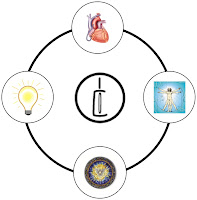 |
| Finding the dream job: |
Another way to say the same thing would be do stuff you love to do (emotionally vested, passionate), stuff you are good at (talents, focus, drive, energy), and stuff that someone will pay you to do (what the world needs.) That is the place to be if you want to be a champion sales professional.
Next week we continue this series with a look at what it means to be 'unique' when selling. ELU to the power of two: Energy, Enthusiasm, Likability, Love, Unique, and Urgent.



















